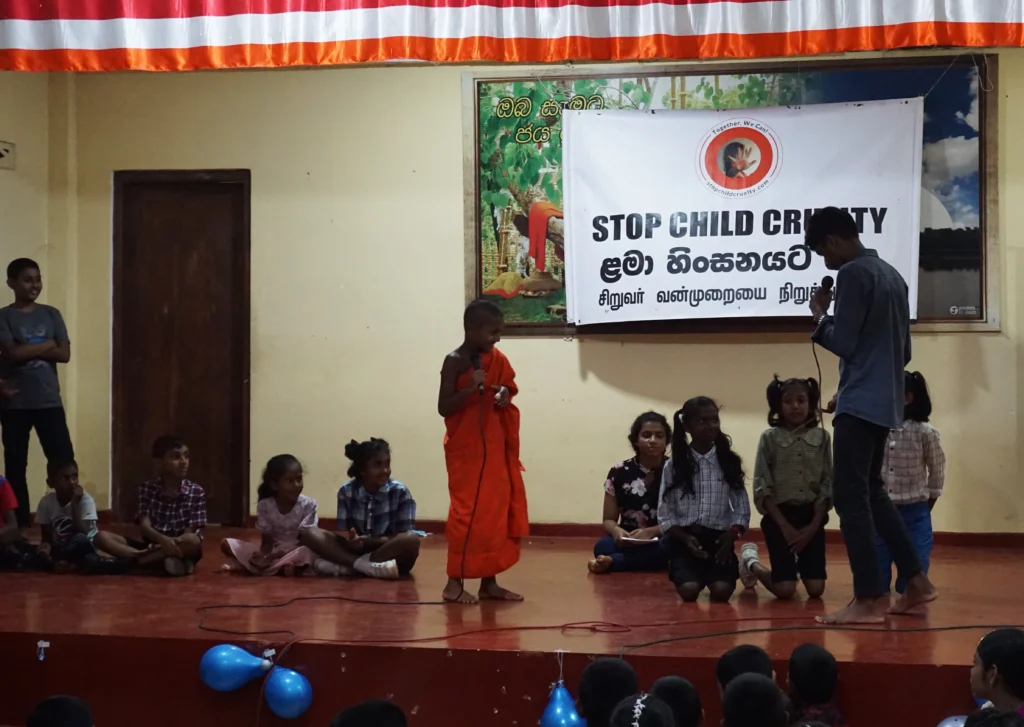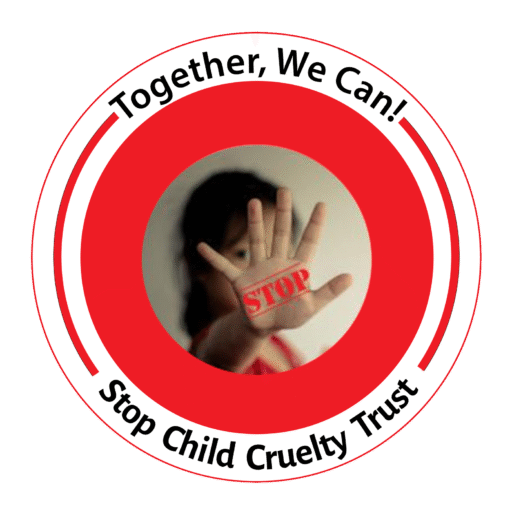JOINT STATEMENT ON INTERNATIONAL DAY TO END CORPORAL PUNISHMENT - 2024
JOINT STATEMENT ON INTERNATIONAL DAY TO END CORPORAL PUNISHMENT - 2024
JOINT STATEMENT ON INTERNATIONAL DAY TO END CORPORAL PUNISHMENT - 2024

Child Cruelty has increased by 30% in past ten years and is the most common complaint received by National Child Protection Authority. Children participate in a thought provoking drama performance on ending corporal punishment, which is also common in religious institutions.
30th April is the International Day to End Corporal Punishment, the only day dedicated to a specific type of child abuse. The United Nations Convention on the Rights of the Child (CRC) 1989, the most widely ratified international treaty concerning children’s rights, requires “States to take all appropriate legislative, administrative, social, and educational measures to protect the child from all forms of physical or mental violence, injury or abuse, neglect or negligent treatment, maltreatment or exploitation, including sexual abuse, while in the care of parent(s), legal guardian(s), or any other person who has the care of the child.”
” However, corporal punishment is the most common form of child abuse, affecting over 1.3 billion children across the world. The consequences of physical abuse have a significant burden on education, health, law and order, and social services of a country, affecting the productive contribution of the young generation. Worldwide around 4 in 5 of all children aged 2-14 years are subjected to corporal punishment in their home every year (physical punishment and/or psychological aggression). Research has found strong evidence connecting violent punishment with multiple harmful impacts for the child and society, including significant economic costs.
Children are the most vulnerable community in any country that requires effective legislature and social structures to protect and promote their rights. In 2015 countries around the world committed to Sustainable Development Goal 16.2, ending violence against children by 2030, but the progress to date is far from satisfactory. With few years until 2030 and the end of the SDG timeframe, each year is a critical year for keeping the promise to end violence against children in SDG target 16.2.

Child Cruelty has increased by 30% in past ten years and is the most common complaint received by National Child Protection Authority. Children participate in a thought provoking drama performance on ending corporal punishment, which is also common in religious institutions.
30th April is the International Day to End Corporal Punishment, the only day dedicated to a specific type of child abuse. The United Nations Convention on the Rights of the Child (CRC) 1989, the most widely ratified international treaty concerning children’s rights, requires “States to take all appropriate legislative, administrative, social, and educational measures to protect the child from all forms of physical or mental violence, injury or abuse, neglect or negligent treatment, maltreatment or exploitation, including sexual abuse, while in the care of parent(s), legal guardian(s), or any other person who has the care of the child.”
” However, corporal punishment is the most common form of child abuse, affecting over 1.3 billion children across the world. The consequences of physical abuse have a significant burden on education, health, law and order, and social services of a country, affecting the productive contribution of the young generation. Worldwide around 4 in 5 of all children aged 2-14 years are subjected to corporal punishment in their home every year (physical punishment and/or psychological aggression). Research has found strong evidence connecting violent punishment with multiple harmful impacts for the child and society, including significant economic costs.
Children are the most vulnerable community in any country that requires effective legislature and social structures to protect and promote their rights. In 2015 countries around the world committed to Sustainable Development Goal 16.2, ending violence against children by 2030, but the progress to date is far from satisfactory. With few years until 2030 and the end of the SDG timeframe, each year is a critical year for keeping the promise to end violence against children in SDG target 16.2.

Child cruelty has increased by 30% in the past ten years and is the most common complaint received by the National Child Protection Authority. Children participated in a thought-provoking drama performance on ending corporal punishment, which is also common in religious institutions.
30th April is the International Day to End Corporal Punishment, the only day dedicated to a specific type of child abuse. The United Nations Convention on the Rights of the Child (CRC) 1989, the most widely ratified international treaty concerning children’s rights, requires “States to take all appropriate legislative, administrative, social, and educational measures to protect the child from all forms of physical or mental violence, injury or abuse, neglect or negligent treatment, maltreatment or exploitation, including sexual abuse, while in the care of parent(s), legal guardian(s), or any other person who has the care of the child.”
” However, corporal punishment is the most common form of child abuse, affecting over 1.3 billion children across the world. The consequences of physical abuse have a significant burden on education, health, law and order, and social services of a country, affecting the productive contribution of the young generation. Worldwide around 4 in 5 of all children aged 2-14 years are subjected to corporal punishment in their home every year (physical punishment and/or psychological aggression). Research has found strong evidence connecting violent punishment with multiple harmful impacts for the child and society, including significant economic costs.
Children are the most vulnerable community in any country that requires effective legislature and social structures to protect and promote their rights. In 2015 countries around the world committed to Sustainable Development Goal 16.2, ending violence against children by 2030, but the progress to date is far from satisfactory. With few years until 2030 and the end of the SDG timeframe, each year is a critical year for keeping the promise to end violence against children in SDG target 16.2
